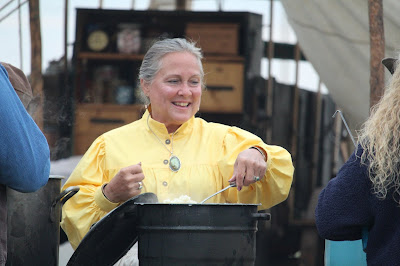Walking through the aisles in the Topeka grocery store, I surveyed the shelves for cornmeal. Lord knows I had seen cornfields aplenty, far larger than the ones back home in the Blue Ridge Mountains. Surely, there was some decent cornmeal to be had. But alas, my efforts were futile.
Weeks later, I was in the local doughnut shop when I spied a group of farmers in the corner. I knew they were farmers from their Co-op caps and their conversations about diesel prices and yield.
Never shy, I confronted them. "Y'all raise a lot of corn, don't ya? Then how come you can can't find good cornmeal around here?"
They looked at me like I was a pea-green alien with three eyes and lobster claws for hands. They did not hesitate, and replied in unison, "Corn's for animals."
Aha, I got the unspoken part of the message--"and poor people."
I was well-acquainted with the role of corn in the lives of poor people. My people had converted corn to liquor for decades because it was more profitable and easier to transport a gallon of liquid than bushels of corn. Corn was the staff of life. There was cornbread for dinner (the noon meal) every day.
EVERY day.
If you were walking down the road at the right time, you saw Mama's cousin, Farley, driving to town in his 1950-something pickup with a load of white corn he had picked that morning. He was headed to the mill owned by another cousin, Clayton, who ground meal and sold it to the local grocery stores. If you got to the mill at just the right time, there would be a cast-iron skillet coming out of the wood cookstove oven with a perfectly brown pone of cornbread.
Clayton explained that mass produced cornmeal meant taking the heart of the kernel away. It was the only way to insure shelf life because the moisture and nutrients and flavor are in the heart--things that do not keep indefinitely. So most commercial cornmeal is just the dry kernel with no heart. No further explanation needed for why there is no life in all those other corn meals.
When the relatives back home remember, they send me home-grown, stone-ground meal. Sometimes, I share it with my friends and family. Sometimes, I lock the door and eat it all myself, and pity the folks who pity the poor.





No comments:
Post a Comment